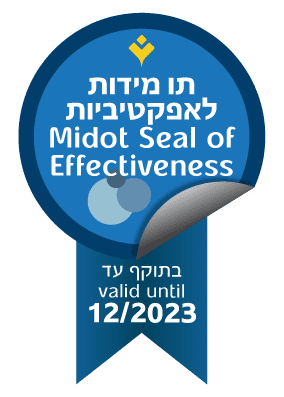Whether triggered by a recent event, or by events that occurred decades ago, post-traumatic stress disorder (PTSD) — and its accompanying symptoms — does not simply go away after a certain amount of time.
In Israel, Memorial Day and Holocaust Remembrance Day are difficult days for many, especially for those who suffer from post-trauma, and their close family and friends. In advance of next year’s holidays, we want to remind you that there is a great deal of meaning and importance to engaging with and supporting people with PTSD, and that there are effective treatments that can alleviate, or at the very least decrease, some of the symptoms. Thus, it is important to be attentive to those who suffer from PTSD and to their symptoms, especially on difficult days.
What is PTSD?
Post-traumatic stress disorder (PTSD) is a mental health condition that can arise from exposure to one or more traumatic events. One of the main symptoms is feeling flooded by recurring images, memories, noises, smells, thoughts, hallucinations (such as flashbacks), or dreams that are related to the threatening experience. Other symptoms include avoiding people, places and activities that recall the traumatic event, and experiencing significant impairment in mood or functioning.
According to various estimates, in Israel there are currently tens of thousands of people living with post-traumatic stress disorder, about 15% of whom were injured during terrorist attacks, wars, or other combat operations.
What is the relationship between PTSD and addiction?
The data in the United States show that many of those suffering from “shell shock,” as a result of combat experiences during their military service, tend to consume cannabis (marijuana), alcohol, and prescription drugs.
In the US, the co-occurrence of post-traumatic stress disorder (PTSD) and substance use disorders (SUD) among discharged soldiers is a common and recognized phenomenon that is treated by mental health practitioners and institutions. More than 20% of discharged soldiers who have been diagnosed with PTSD also suffer from drug or alcohol use disorders.
The US Veterans Affairs (VA) bureau data show that more than 40% of its members needed treatment due to a dual diagnosis of PTSD and addiction.
Another figure published by the VA indicates that about 75% of military veterans with PTSD report having an alcohol use disorder (AUD).
Although the relationship between addiction and PTSD is not entirely clear, it is commonly assumed that people with PTSD often use addictive substances in order to alleviate their post-trauma symptoms. This is known as “self-medicating” use, and is associated with many PTSD sufferers. However, recurring and intensive use of a substance can eventually develop into a use disorder. Moreover, the repeated use of addictive substances over time can exacerbate PTSD symptoms and functional impairment, which in turn stimulates the consumption of more addictive substances. Thus, the two disorders feed off of each other.
It is, therefore, very important to be aware of the high prevalence of addiction among those with PTSD, and to turn and refer to treatment as soon as possible. It is also important to remember that there is hope: there are effective treatments today for those suffering from PTSD and addiction. It is key that both disorders be treated together, with an understanding of how they interact, and within an integrative framework that provides treatment for both.

